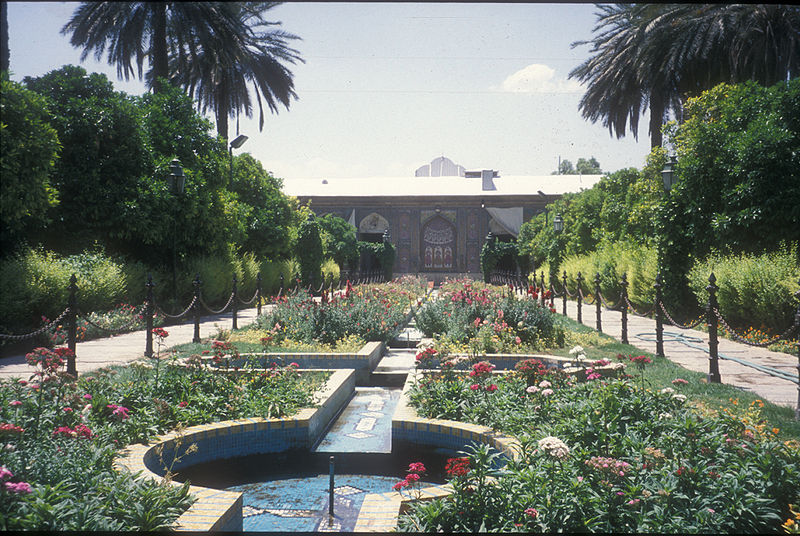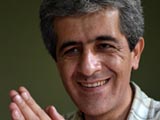Controversy Over a Will
by Yaghoub Yadali and translated by Parvaneh Torkamani / April 17, 2014 / No comments
Death becomes a political contest in Iran as the fight over an American scholar’s burial continues.

The Qavam House, where the famous Shiraz University Asia Institute was founded. Richard N. Frye (1920-2014) headed the institute from 1969 to 1974. Photo: Wikimedia Commons.
A CIA spy and an antiques thief! This is how Kayhan, a radical newspaper, along with several conservative news sites, have described Richard N. Frye, a professor and distinguished American scholar of Iranian and Central Asian studies at Columbia and Harvard University. This description was not written in a breaking news story, but rather in an obituary; Frye passed away on March 27, 2014.

- “Enemy…terrorism…nuclear bomb…war.” These words are often used by American media to describe Iran. The image the media presents is often hazy, incomplete, and distorted. The political and military aspects of my country are covered mainly in a negative light.
- In Under Eastern Eyes (I have adopted the name from the novel Under Western Eyes by Joseph Conrad), I will write about those topics which American media either cannot or does not want to talk about. The emphasis will be on social and cultural aspects of Iran although, out of necessity, I will talk about politics, despite my despair.

- Yaghoub Yadali, born in 1970, is a writer and television director. His first work of fiction, the short-story collection Sketches in the Garden, was published in 1997. It was followed in 2001 by Probability of Merriment and Mooning, which was named book of the year by the Writers and Critics Award. His first novel, The Rituals of Restlessness, won the 2004 Golshiri Foundation Award for the best novel of the year and was named as one of the ten best novels of the decade by the Press Critics Award. He has also published many articles and reviews of literature and cinema in newspapers and magazines in Iran.
These days in Iran, there is a media war. On one side is the aforementioned radical newspaper and a few powerful, conservative news agencies. The other side consists of reformist newspapers, news agencies, and news sites. The argument concerning Frye is over his last will and testament. Because of his deep love for Iran, Frye asked to be buried in the historic city of Isfahan (my birthplace), like his mentor, Arthur Pope. Frye loved this area and dedicated his life to Iran’s language and culture, as well as other Persian cultures (Afghanistan, Tajikistan, and Armenia). Years ago, when Frye met Iran’s two previous presidents, Khatami and Ahmadinejad, he made them promise to let his body be buried in Iran. It is said that Ahmadinejad even gave him a luxurious house in Isfahan and said, “Why after death? We will give you a house while you live.”
An agreement was signed over Frye’s burial, but because of pressure from the media, this promise has not gone beyond the written agreement.
Frye’s Iranian wife and some culture-loving Iranians are trying to act in accordance with Frye’s will. Since March 27, his body has been waiting in Boston’s Watertown morgue for the resolution of these arguments. There have also been reports that Tajikistan has offered to accept and bury Frye’s body, but these reports have since been denied.
Nevertheless, the bipartisan arguments surrounding this case in Iran reveal the tension on both sides. The radical faction wants to mar the reformists’ credibility in the public’s eyes, while the reformists, who always rise in defense of culture and thought, don’t want to lose their position and would rather not be involved with the radicals in any obvious way. In the middle is the bitter reality of a political approach to the will of a distinguished and respected scholar. Personally, I’m more interested in the perspective of ordinary citizens. Many have criticized the radical conservatives’ unfounded accusations that Frye and Pope are spies and thieves. On this issue, it seems like Iranian public opinion is more realistic and sincere than the political factions who come up with beautiful slogans, but secretly act differently, and do not hesitate to politicize a will in order to benefit from it.




